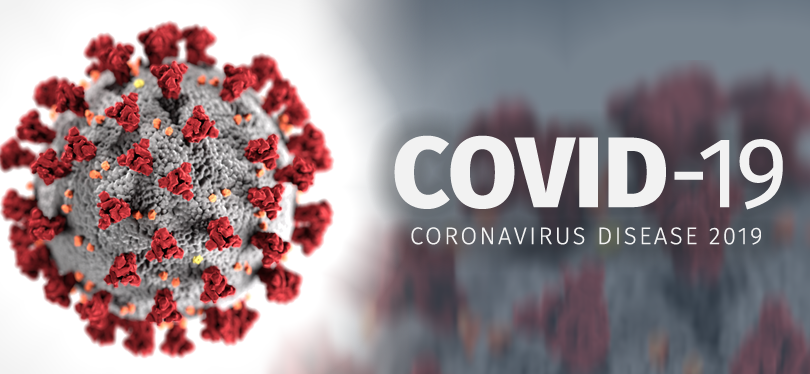Technology in the age of COVID-19
It is kind of ironic that it took COVID-19 to bring back the good memories of a Nigerian village boy! With the situation the way it is today in my part of the United States; that is, New York City metro area, I couldn’t but be reminded of the way we used to live way-back-when […]

It is kind of ironic that it took COVID-19 to bring back the good memories of a Nigerian village boy! With the situation the way it is today in my part of the United States; that is, New York City metro area, I couldn’t but be reminded of the way we used to live way-back-when in a remote village in Nigeria. This village, Otu, which is less than two miles from “downtown” Kabba in Kogi State of Nigeria, has pretty much now merged with Kabba. At the time, Otu was very small, with perhaps less than 1000 people. Life was very modest back then; you knew the people in every household. Though my father was a Counselor under Chief Obafemi Awolowo’s political party, he was also a farmer. The males in the family, including myself, went to the farm, while the females took care of the home. After returning home from the farm, the whole family would stay together, in the house, from evening to the next morning, to start the routine all over again. There were not many places to go in a small village; neither were there any motivations to go out, at any rate. We were always with our two parents who had all the time for us. (Divorce was rare in those civilizations back then.) In short, we were well brought up. This was in the late fifties and early sixties. I was in the primary school and less than 12 years old, but I was truly a very happy child in the village. Then I went to secondary school, HSC, graduated from the Great UI, became a young adult, got married, and eventually – about 40 years ago – moved my family to the US.
With the coronavirus getting the best of the US these days, I can’t but reminisce in those good old days in the village when life was pretty simple and, honestly, people appeared to be quite happy. Last week, major universities in the US, such as Harvard, Stanford, MIT, New York University, State University of New York at Stony Brook (where I teach), and perhaps thousands of others worldwide, temporarily closed down or moved all classes online because of COVID-19. The New Rochelle community in New York, which is the epicenter of the coronavirus pandemic in this region, is on total lockdown and the US National Guard has been brought in to “cleanse” the city. Italy is certainly in trouble, as the whole country has essentially been grounded.
Here are a few of the things that make today look much more like the early sixties for me in a remote Nigerian village. The shelves are empty at many stores in my community in the US – there were no big stores in the village. Effective last week Friday, the US banned all airlines originating from Europe from landing in the US for a period of 30 days. In the village, we didn’t have access to, or a need for, air travel, and the aerodrome in Kabba was being used only by the colonial masters. (After the amalgamation of the Northern and Southern protectorates of Nigeria in 1914, Lord Fredrick Luggard, the first Governor-General of Nigeria, ruled from Lokoja. Moreover, the name “Nigeria” was reportedly coined by Lady Flora Shaw while she was in Lokoja. With the scorching heat in Lokoja, the British were more comfortable living in Kabba, which is barely 30 miles away. That was how we got to have an aerodrome in Kabba; though this has since disappeared.)
All over the world, there are suggestions for people to self-quarantine and live quiet and innocent lives, just as I did in the village. Moreover, most large-scale sports events have been cancelled in all places around world; something I did not miss in the village since there were none of those! Folks in the US are concerned about taking public transportation. Well, there was none in the village. Relatively speaking, I have more time to spend with my wife now – since we have to watch where go – just like in the village when families stayed together. Moreover, global businesses are certainly seeing significant negative impacts of COVID-19 in a manner that would impact people’s financial wellbeing. In the village, our financial wherewithal wasn’t robust at all, but then we could at least feed ourselves from what we grew on the farm. In modern communities you need money to feed yourself, which is certainly not a good prospect if we can’t resolve our COVID-19 issues quickly.
The bottom line is that COVID-19 reminds us of what is really important in our lives. We are forced to differentiate between “need” and “want.” When COVID-19 first surfaced in the US, the country’s president used his all familiar word “hoax” in connection with the incidence. Now it is rumored that he might have caught the virus himself, so that the issue then suddenly transitions from “hoax” to an existential one. Finally, I don’t know how Facebook, Instagram, and Twitter could help fight COVID-19. If anything, they have helped spread rumors that make people even more anxious. On the other hand, now that many people work from home, productivity-related software tools are quite helpful. But when push comes to shove, tools that solve existential problems are those that really matter.
